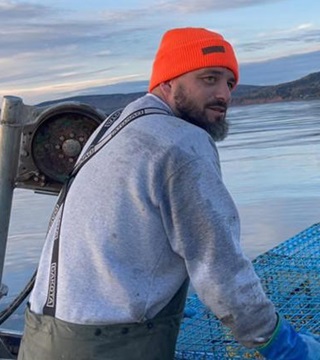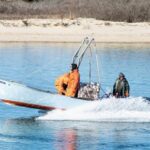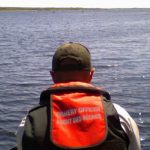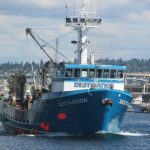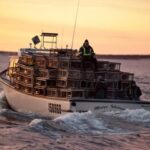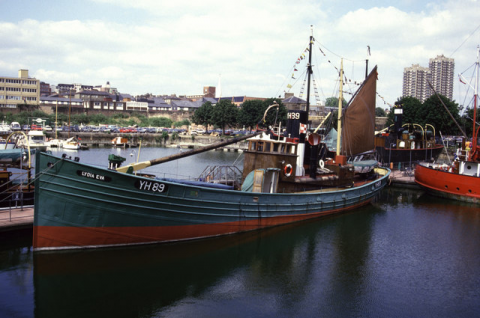Tag Archives: Supreme Court of Canada
Lobster group files legal action over moderate livelihood fishery
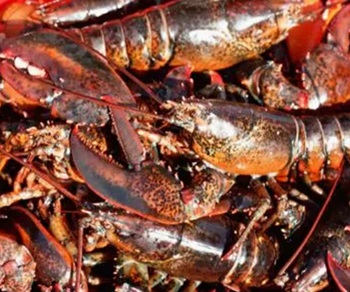 A lobster conservation group in southwestern Nova Scotia is taking legal action against Ottawa and the Sipekne’katik First Nation over out of season fishing. The Unified Fisheries Conservation Alliance (UFCA) filed a notice of action in Supreme Court in an effort to declare the summer fishery illegal. “The Supreme Court of Canada introduced the concept of a moderate livelihood fishery via the Marshall decisions but has never adequately defined the scope and limits that should apply,” said Michel Samson, counsel with the law firm Cox & Palmer. “This has created confusion between the DFO and the Public Prosecution Service as to what laws to enforce. It is imperative that our courts provide the rules and clarity required for both the commercial fishery and for First Nation communities.” more, >>CLICK TO READ<< 13:05
A lobster conservation group in southwestern Nova Scotia is taking legal action against Ottawa and the Sipekne’katik First Nation over out of season fishing. The Unified Fisheries Conservation Alliance (UFCA) filed a notice of action in Supreme Court in an effort to declare the summer fishery illegal. “The Supreme Court of Canada introduced the concept of a moderate livelihood fishery via the Marshall decisions but has never adequately defined the scope and limits that should apply,” said Michel Samson, counsel with the law firm Cox & Palmer. “This has created confusion between the DFO and the Public Prosecution Service as to what laws to enforce. It is imperative that our courts provide the rules and clarity required for both the commercial fishery and for First Nation communities.” more, >>CLICK TO READ<< 13:05
N.S. First Nations to exercise right to moderate livelihood during upcoming lobster season
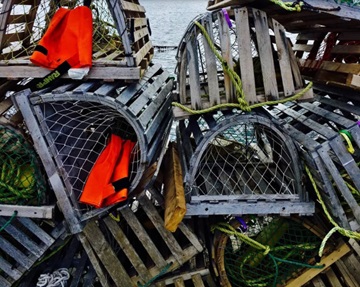 For the third consecutive year, four First Nations in southwestern Nova Scotia will exercise their treaty right to fish for a moderate living when Canada’s most lucrative lobster fishery opens next week. The Department of Fisheries and Oceans announced Monday that it has again issued an interim authorization to Wasoqopa’q (Acadia), Annapolis Valley, Bear River and Glooscap First Nations. DFO insists that moderate livelihood fishing must occur during commercial seasons — a limitation that some Mi’kmaq do not accept. The right to earn a moderate living was recognized — but not defined — by the Supreme Court of Canada more than 20 years ago in the Marshall cases. >>click to read<< 07:53
For the third consecutive year, four First Nations in southwestern Nova Scotia will exercise their treaty right to fish for a moderate living when Canada’s most lucrative lobster fishery opens next week. The Department of Fisheries and Oceans announced Monday that it has again issued an interim authorization to Wasoqopa’q (Acadia), Annapolis Valley, Bear River and Glooscap First Nations. DFO insists that moderate livelihood fishing must occur during commercial seasons — a limitation that some Mi’kmaq do not accept. The right to earn a moderate living was recognized — but not defined — by the Supreme Court of Canada more than 20 years ago in the Marshall cases. >>click to read<< 07:53
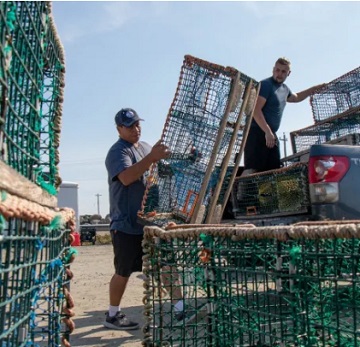
DFO says it has enough resources to monitor Indigenous lobster fishing in Nova Scotia
Fisheries and Oceans Canada (DFO) says its enforcement branch will be on the water and adequately equipped to monitor compliance of First Nations lobster fisheries this summer. The pledge follows the chaotic fishery for baby eels this spring where there was widespread illegal activity by some Indigenous and non-Indigenous harvesters. DFO shut down the legal elver fishery, affecting both commercial licence holders and Indigenous groups with fishing plans approved by the department. But “poaching”, as federal Fisheries Minister Joyce Murray called it, continued. “I want to clarify they are two very different fisheries,” Maritimes region director of conservation and protection Tim Kerr told reporters Monday in a briefing on Indigenous rights-based lobster fisheries. >click to read< 08:35
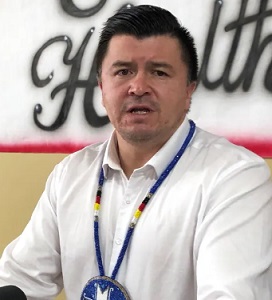
3 Mi’kmaw First Nations excited about moderate livelihood fisheries
Three Mi’kmaw communities are celebrating their dramatically increased roles in the lobster fishery around Cape Breton Island this spring. The Department of Fisheries and Oceans announced Tuesday it has renewed moderate livelihood understandings with Potlotek and We’koqma’q, and now Eskasoni has joined them. Eskasoni Chief Leroy Denny said he is excited because up to 70 fishers will now be out on the water hauling in traps and earning a living. “It’s a really good thing, a really very big deal for us,” he said. Under interim understandings, the bands will fish during the commercial season, which is open now around Cape Breton and closes in mid-July. >click to read< 10:31
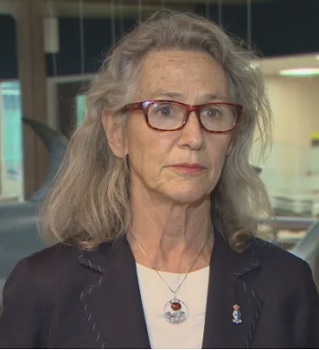
DFO: ‘no plan’ to cut commercial lobster catches to implement treaty fishery
The issue has swirled through Maritime coastal fishing communities since the federal government relaunched a voluntary commercial licence buy-back program last year to make room for more Mi’kmaw access, so far without success. The departmental statement followed a response from Fisheries Minister Joyce Murray to Conservative fisheries critic Rick Perkins during Question Period Monday. “DFO sources tell me the minister was about to expropriate 15 per cent of lobster traps from licence holders, without compensation, to give to First Nations,” Perkins said Monday. “This would be devastating for these fishermen. >click to read<13:43

Newfoundland skipper convicted of trying to throw woman overboard didn’t suffer a miscarriage of justice
The Supreme Court of Canada has sided with the Crown in the case of Trent White and agreed with the lone Newfoundland and Labrador Court of Appeal judge who had disagreed with the decision to allow White a new trial, rejecting his argument that his previous defence lawyer had been inadequate. White was convicted in 2018 of aggravated assault, assault and damage to property related to incidents that had occurred on a commercial fishing boat during the 2017 turbot fishery. The 65-foot vessel had left Rocky Harbour for the Labrador Sea near Red Bay and was travelling in the Strait of Belle Isle when White reportedly tried to throw a crew member, his girlfriend, overboard. >click to read< 09:52

UFCA President Says Important Days Coming In Court
The group representing 2,000 commercial fishing stakeholders in Nova Scotia and New Brunswick have been granted intervener status in several Indigenous court cases. The latest came in December in a notice of application brought forward by the Sipekne’katik First Nation to the Supreme Court of Canada. The band’s application is against the federal government, challenging their regulation and enforcement of Indigenous fisheries. UFCA President Colin Sproul says these are the most vital court cases since the Marshall Decision. He says the UFCA’s goal is to have one set of rules for all fishers, within established seasons, and they are committed to a peaceful solution with all parties involved. >click to read< More UFCA >click< 14:26

Potlotek First Nation seeking injunction to prevent DFO from interfering with self-regulated fishery
Nova Scotia commercial fishermen will find out Friday whether they can intervene in a court case that tests the federal government’s authority to regulate a Mi’kmaw lobster fishery. The Potlotek First Nation is seeking an injunction to prevent the DFO from interfering with its self-regulated moderate livelihood lobster fishery. The Cape Breton band wants a court declaration that enforcement of the federal Fisheries Act infringes on its treaty right to earn a moderate living from fishing. Justice John Keith said he will issue a decision Friday afternoon. Colin Sproul, a spokesperson for the Unified Fisheries Conservation Alliance, “All I can say is that we’re really happy to have the opportunity to share our perspectives with the court, but I can’t really comment much more than that while there are the issues before the court,” >click to read< 22:40
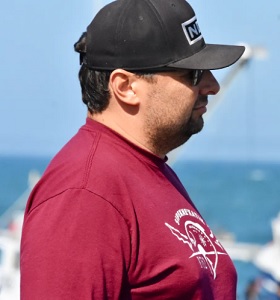
The Mi’kmaq fishing dispute: What the treaties said and how the wording could affect a future fishery
“We have a treaty right,” said Chief Mike Sack, wearing a hat emblazoned with Honour Treaties, when asked why the band had renamed their effort from the “moderate livelihood” fishery they launched last fall. The latter term was coined by the Supreme Court of Canada in its 1999 Marshall decision. But the decision that acknowledged a moderate livelihood treaty right also stated the authority to regulate, after consultation with First Nations, is held by the federal fisheries minister. With Sipekne’katik fishers setting traps under a self-regulated treaty fishery and federal officers hauling them and arresting Chief Sack for questioning on suspicion of inciting an illegal fishery, the question is raised: what do the treaties say? >click to read< 10:21
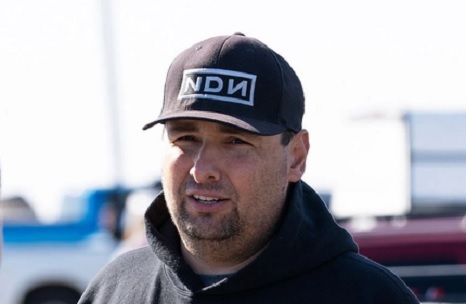
Arrested by the Feds! Chief Mike Sack busted “for promoting an illegal fishery.”
The chief of Sipekne’katik First Nation has been arrested by federal fisheries officers on the day the band’s new treaty fishery launched in southwest Nova Scotia. Chief Mike Sack was arrested on Monday, taken to the Meteghan fisheries office and later released. DFO has not provided details of why Sack was arrested, or whether he could face charges under fisheries legislation. ‘Why would you arrest me? I haven’t done anything here,'” he said. “It just seems to be all scare tactics for the fisheries, to try to stop what we have going on.” >click to read< 15:59

Treaty rights are a provincial and federal election issue says Sipekne’katik First Nation Chief Mike Sack
The fishery offers the Mi’kmaw community in central Nova Scotia a path out of poverty, Sack said. But the strict restrictions on what Indigenous fishers can catch and sell further perpetuates the cycle of injustice,,, Indigenous fishers in Nova Scotia argue that a 1999 Supreme Court of Canada decision affirms the Mi’kmaw treaty right to fish for a “moderate livelihood” when and where they want, including outside the federally regulated commercial fishing season. Some critics, however, are quick to point out a clarification later issued by the court saying the treaty rights would be subject to federal regulations. >click to read< 16:52
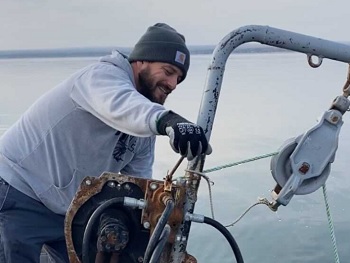
A group of Indigenous Fishermen want to take the Government of Canada to court with a class action lawsuit
Cody Caplin is frustrated. “They just keep taking away from me and my family,” he says. “The “they” he’s referring to are officers from the federal Department of Fisheries and Oceans, who Caplin alleges keep him under surveillance. He says these officials are often around when he comes back to the wharf from fishing. “If we go drop traps, they’ll park their vehicle, walk on down to our boat, and say ‘you guys can’t put those traps in the water without tags.’ [And I’ll say] ‘well, actually, we can,’” he says. That’s why Caplin is part of a group of Mi’kmaq fishermen from across Atlantic Canada looking to launch a class action lawsuit against the Canadian government, claiming that their rights are not being respected. >click to read< 20:33
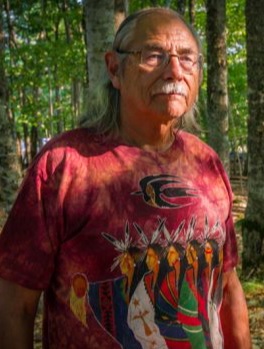
Hugh Akagi – Inherent Indigenous rights are not a gift from government
The Supreme Court of Canada has begun to repair the hundreds of years of friction between Indigenous people and European settlers. The court recently ruled that “persons who are not Canadian citizens and who do not reside in Canada can exercise an Aboriginal right.” Many people are thinking long and hard about the implications. Imagine, rights protected by the Canadian Constitution being extended to people who have never lived in Canada. Here’s the background: >click to read< 11:32

No more kicking ‘the rock down the road,’ on Indigenous fishery
A member of the parliamentary committee looking at Indigenous rights to a moderate livelihood fishery, says it is past time for government to deal with the issue. The parliamentary fisheries and oceans committee released a report earlier this month containing 40 recommendations on how to move those treaty rights forward. “It’s unfortunate that since the Marshall decision was made in Supreme Court that successive governments, Liberal and Conservative, have what I would call kicked the rock down the road rather than deal with the issue. And we’ve seen that come to a head last year,” said Egmont MP Bobby Morrissey, “Canada and the industry suffered a bit of a black eye from that, and it was unnecessary.” >click to read< 10:05
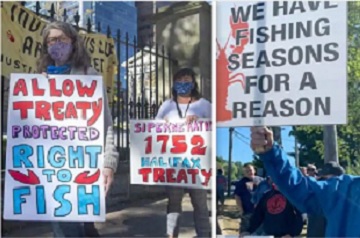
Nova Scotia lobster dispute. New year, new dispute
A Supreme Court ruling noted that Indigenous peoples have an inherent right to hunt and fish to earn a “moderate living” although what that phrase meant was never determined. In Nova Scotia, Indigenous groups have said the ruling means they can fish whenever they want. Commercial fishers say the established limited seasons must be respected for conservation reasons and are angered at the out of season fishing by Indigenous groups. Often not mentioned is the addition to the Supreme Court ruling which noted that the Indigenous rights were not absolute and limitations could be made for conservation needs and other limited “compelling and substantial public objectives”. >click to read< 07:38
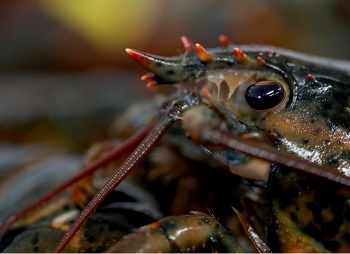
Canadian government likely has not met constitutional obligations to First Nations
The precedent set by the Supreme Court of Canada in the Marshall cases recognizes the First Nations’ right to fish under the Peace and Friendship Treaties but also allows for limitations by the government for the purpose of conservation. The Badger decision set out the parameters for applying those limitations and puts the onus on the federal government to show that the infringement of treaty rights is justified, and to consult with First Nations to find a solution that puts the minimum restrictions on Indigenous rights. The 13 Nova Scotia First Nations chiefs have unanimously rejected Jordan’s plan for a number of reasons, a major one being a lack of consultation. >click to read< 11:45

Nova Scotia’s Mi’kmaq chiefs want to see the science that restricts their fisheries.
Last week, Federal Fisheries Minister Bernadette Jordan, in a bid to end the conflict that has arisen since the Sipekne’katik First Nation began a moderate livelihood lobster fishery in September, announced that such fisheries would be required to operate within established commercial fishery seasons. That announcement, sandwiched between two meetings with the Assembly of Nova Scotia Mi’kmaw Chiefs, won praise from commercial fishers, who have contended that fishing outside their established seasons harms the fish stock. However, it drew scorn from Indigenous fishers,,, In a statement Friday, the assembly said that despite requesting specific data sets from the department during meetings over the past week, “including detailed scientific, economic and management data to justify the imposition of commercial seasons,” no such data has been provided. >click to read< 07:40

DFO: moderate livelihood fisheries must occur during commercial season
The Trudeau government will announce conditions for the authorization of moderate livelihood fisheries Thursday, including the expectation that those fisheries take place within existing commercial seasons. The Assembly of Nova Scotia Mi’kmaw Chiefs did not respond to a request for comment, but Mi’kmaw leaders and some academics have insisted the moderate livelihood fishery poses no risk to stocks because it is too small. The office of Fisheries and Oceans Minister Bernadette Jordan declined to comment in detail on DFO’s position until it is released Thursday, except to say the decision is based on conservation. >click to read< 07:10
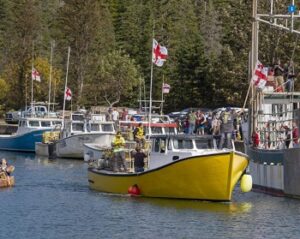
Federal fisheries minister concerned about size of Mi’kmaq fishery in Cape Breton bay
Bernadette Jordan said Friday that while the government recognizes the Mi’kmaq treaty right to fish, the scale of the lobster harvest in the bay is exceeding proposals made by Indigenous fishers. “While lobster stocks are generally healthy, monitoring has recently indicated that fishing activities have significantly increased in St. Peters Bay,” the minister said in a statement. >click to read< 09:32
N.S. Seafood Alliance declares opposition to out-of-season moderate livelihood fishery – The Nova Scotia Seafood Alliance said it supports the treaty right, but it must be subordinate to limits set and policed by the government of Canada. >click to read<

Lobster fishing must remain in season – ‘The federal government has allowed a regulatory system with unconstitutional provisions’
Wayne Easter, the P.E.I. MP who chaired the federal fisheries committee looking at moderate livelihood fisheries 21 years ago, says there are still questions to be resolved, but fishing out of season shouldn’t be one of them. In two decisions in 1999, known as Marshall I and Marshall II, the Supreme Court of Canada affirmed that Indigenous people have historic treaty rights to moderate livelihood fisheries. Easter’s committee was asked to examine the implications and made 28 recommendations. The current federal fisheries committee has begun another review. >click to read< 10:42
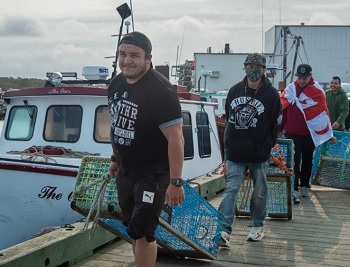
The limits on Crown regulation of Aboriginal and treaty rights
Acting on treaty right recognized in the Supreme Court of Canada’s decision 21 years ago in R v Marshall, the Sipekne’katik First Nation launched its moderate livelihood fishery in the waters off southwest Nova Scotia in early September. Since the fishery’s launch, some have suggested the Canadian government has broad authority to dictate how the Mi’kmaq’s treaty-based fisheries can operate. While the Court in Marshall (and in a subsequent, related decision in Marshall 2) acknowledged Canada could lawfully “regulate” the treaty right, regulate does not mean Canada may legislate and limit the treaty right in whatever way it sees fit. Far from it. As two law professors who teach Aboriginal law, we have decided to weigh-in to provide clarification. Our clear answer is that Canada’s actions, thus far, would not meet Constitutional muster. >click to read< 08:36
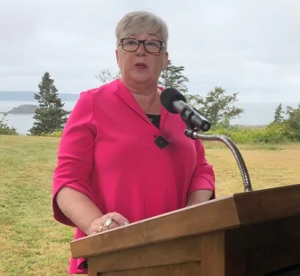
Lobster crisis. Is anyone at the helm?
Clearly, Fisheries Minister Bernadette Jordan doesn’t suffer from NIMBY syndrome (Not In My Backyard). How do we know? Because she’s allowed fisheries tensions to escalate,,, To be fair, the issue has simmered for decades. A 1999 Supreme Court of Canada decision reaffirmed the treaty rights of Nova Scotia’s Mi’kmaw communities to a moderate livelihood fishery. Tempers have flared occasionally over the years, and none of Jordan’s predecessors had the courage to create an industry where the moderate livelihood fishery happened without opposition from commercial fishers. The minister needs to show leadership before someone gets seriously hurt, or worse. >click to read< 12:19

Canada’s courts and governments have themselves to blame for the lobster fishery dispute
Imagine the reaction you’d have if you, a Canadian worker, in any field, were told by the courts and the government that you could earn only a “moderate livelihood.” Imagine that on top of this, you’re told that there is no definition of “moderate livelihood”, that it’ll be worked out over time. Your howls of protest would be loud and intense, and rightly so. Yet this is precisely what happened for the Mi’kmaq and Maliseet in Eastern Canada when the Supreme Court of Canada made its 1999 decision in the case of R. v. Marshall, ruling that the First Nations had a treaty right to fish for commercial purposes, but with a “moderate livelihood” restriction on that right. The Marshall ruling,,, >click to read< 16:12
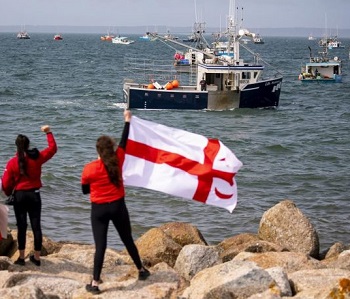
The ‘lobster wars’ rocked Atlantic Canada two decades ago.
It was 21 years ago that a small fleet of Esgenoôpetitj fishing boats took to the waters off western New Brunswick, where the Miramichi River meets the ocean. They had been fishing for lobster in the weeks before as part of their ceremonial fishery, harvesting enough for a feast that would take place at the end of their annual powwow. But on Sept. 17, 1999, the Supreme Court of Canada had released a ruling on Donald Marshall’s case. The Mi’kmaq man had been arrested in Cape Breton, N.S., in 1993 for catching and selling eels out of season. His case went all the way to the Supreme Court, which formally acknowledged the right of Indigenous people to fish year-round for a moderate livelihood. >click to read< 09:46
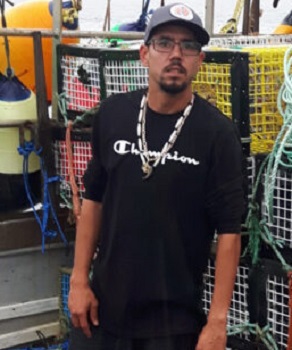
Nova Scotia Mi’kmaw lobster harvester to file an injunction against DFO for seizing traps
“I’m going to get (my lawyer) to file an injunction on my behalf preventing the DFO from violating my rights until they get this moderate livelihood stuff settled,” Matthew Cope, 34, said. Cope, who is from the Millbrook First Nation, said he left the wharf in Digby, N.S. on Aug. 29 to check on his lobster traps when he saw DFO officers aboard the Canadian Coast Guard Vessel, The Earl Grey, seizing 60 of his traps. “We had ten trawls of fifteen each. They took six of them. We caught them in the middle of taking our trawls so I stood up beside them and I said, ‘What are you guys doing?’” Cope explained. “I have a pre-existing inherited treaty right for fishing and I have a right to do so unhindered,” he said. >click to read< 21:46

Consultation lacking on decision to reactivate licenses for Indigenous communities
The reactivation of dormant lobster fishing licences by the federal government has prompted a terse statement from the P.E.I. Fishermen’s Association (PEIFA) and the Maritime Fishermen’s Union (MFU). The two organizations say they were left out of consultation over the reactivation of 10 lobster licences by the Department of Fisheries and Oceans (DFO) in the Lobster Fishing Area (LFA) 25, located on the western end of the Northumberland Strait between P.E.I. and New Brunswick.,,, The statement said fishermen were “frustrated” by the lack of consultation prior to the decision and called for the federal government to bring together Indigenous and non-Indigenous fishermen’s organizations. >click to read< 09:54
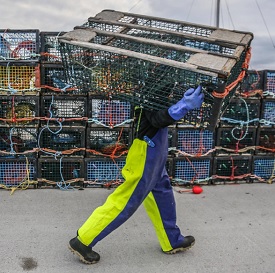
Fishermen clash over fishing rights across the Maritimes, tensions are running high
Canada’s highest court has refused to hear a Mi’kmaw fisherman’s appeal to have legal costs covered in a lawsuit against Ottawa – a potentially groundbreaking case seeking to define treaty fishing rights. The case comes as clashes between non-Indigenous and Indigenous fishermen intensify across the Maritimes. Observers warn the simmering tensions could lead to violence if the “moderate livelihood” fishery described in Donald Marshall Jr. case two decades ago is not clarified. “By not dealing with it, the government is responsible for continued conflict in the fishery.” >click to read< 08:55
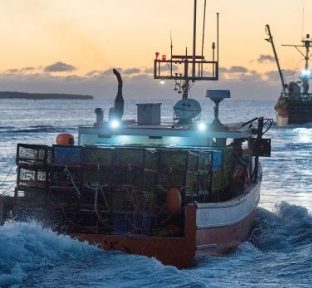
Indigenous fishermen hope to be arrested, trigger court case as Nova Scotia lobster season kicks off
As one of the most lucrative fisheries in Canada prepares for opening day, some Mi’kmaq in Nova Scotia are trying to trigger a court battle over Indigenous fishing, hoping it will see them win a greater share of the thriving lobster business. And they are daring the Department of Fisheries and Oceans to arrest them. One of them is Cheryl Maloney, an activist, law school graduate and mother of four boys. She wants her family to be able to earn the “moderate livelihood” she says the Supreme Court of Canada ruled they are entitled to in 1999. click here to read the story 09:19






